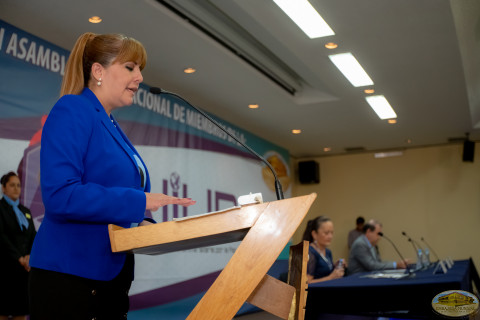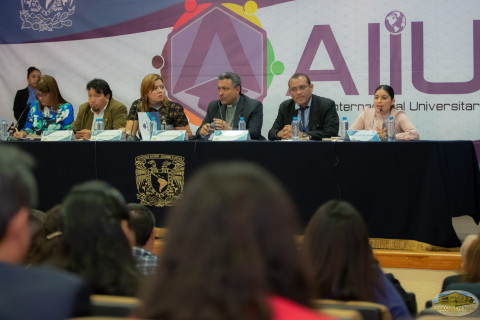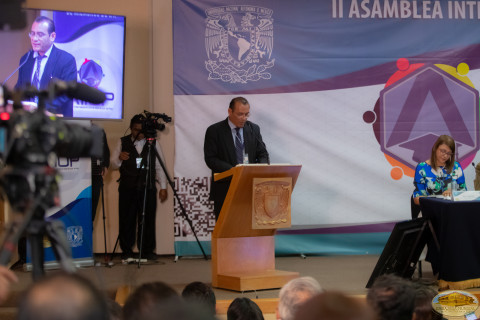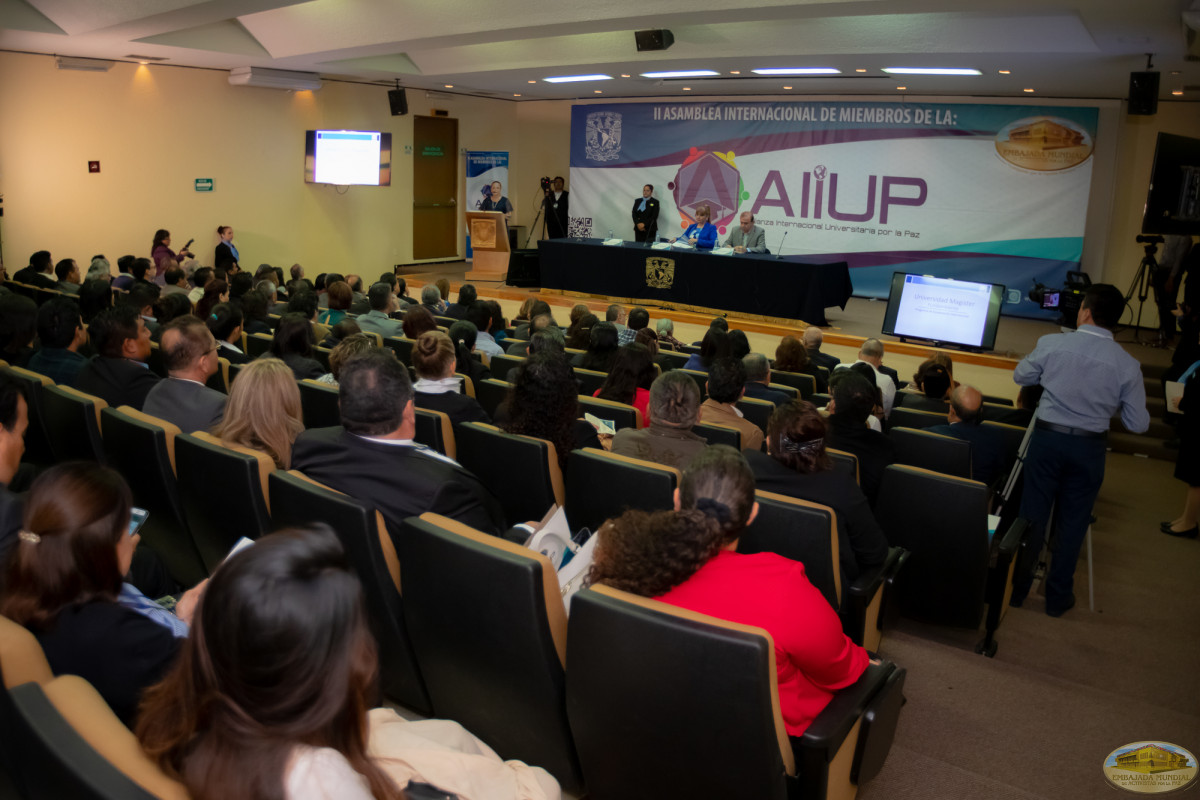University authorities and educators share their house of studies success experiences
The II Assembly of Members of the International Alliance of Universities for Peace (ALIUP), continued in the Humanities Auditorium of the National Autonomous University of Mexico (UNAM) in Mexico City, with a panel called: "The university extension in favor of positive social transformation."
The second session of the Assembly began with the participation of Gabriela Lara, general director of the Global Embassy of Activists for Peace (GEAP), who thanked those present on behalf of William Soto, executive president of the institution, and announced the incorporation of new universities to ALIUP: "Yesterday we were adding more universities to this alliance and we have already reached 290 universities".

As an introduction to the panel, the general director said that the university extension develops actions with an integral and integrating function, based on the improvement, well-being, peace and happiness of all citizens and, especially university environments.
Then, Francisco Guerra, coordinator of the GEAP in Mexico, gave a chronological summary of the alliances with the universities, and emphasized: "But it has not only been a work of alliances. I believe that the most important task has been the work of the implementation - through the university extension - of all the programs that the Global Embassy of Activists for Peace has."
To open the panel, Vivian González Trejos, rector of the Magister University and secretary pro tempore of the ALIUP, of Costa Rica, presented some of the actions implemented by the university she directs, indicating that one of her lines of action is to train professionals in the concepts of peace, harmony, happiness and quality.
Success experiences

Diego Alonso Marulanda, Vice Chancellor of the Pontificia Bolivariana University of Medellín - UPB, Colombia, mentioned that there are several programs that they develop and shared the experience of the Ethnoeducation Degree Program, which currently has 1,310 indigenous students and more than 3,000 graduates from this program.
Similarly, the Vice Chancellor said: "We have understood that educating for lasting territorial peace in our country requires citizens trained in a system of values based on respect, recognition and appreciation of spirituality, of ancestral knowledge, of the sense of family".
Jarib García Hernández, representative of the Benito Juárez Autonomous University of Oaxaca, Mexico, said that the university is developing the diploma "Clinic of cases for high training in human rights."
Among other actions implemented by the university, Garcia said there are the "Development Agencies", where visits are made to the poorest communities in the state, with a focus on human rights, since information is generated on what rights could be violating and where they should direct the teaching methods.
In her participation, Elizabeth Reyes Chávez, rector of the Technological University of the Center of Veracruz, Mexico, said that her institution is attended by students from 112 municipalities in the state, and there are two extensions in vulnerable areas.
One of the experiences shared by Reyes is that the institution helps its students, children of repatriated migrants, who suffer discrimination because of language.
The university supported the initiative of students and teachers who came together and created a conversational club where young people can express themselves. 16 young people implemented this initiative in 2017 and today there are more than 300 who help their classmates who have difficulties with language.
Arsenio Adalid Olmedo Zapata, director of the Primary Education Benito Juárez García School in Mexico, referred to the creation of his own books in the mother tongue, in the Tutunaku language, with a project called The Artisan Book, which includes all the works developed for the strengthening of the identity, customs and traditions of the Tutunaku people.
 Olmedo said: "Indigenous peoples have not lost our identity, they have made us believe that this is the case, but today this document (the Chair for Peace) goes much further ... This document validates, strengthens the work of indigenous peoples they will be doing."
Olmedo said: "Indigenous peoples have not lost our identity, they have made us believe that this is the case, but today this document (the Chair for Peace) goes much further ... This document validates, strengthens the work of indigenous peoples they will be doing."
Jaime Luis Brito, professor at the Autonomous University of Morelos, Mexico, announced that the institution applies university extension through social service, together with innovation programs with the possibility of building spaces for discussing civil rights.
Brito said about these innovative programs: "... A victim assistance program; because throughout this decade in our country, the victims of violence and crime have multiplied, be it due to homicides or, above all, the issue of disappearances and, finally, a program of peace and non-violence, to the way of Gandhi."
Edna Gil, Vice Minister of Extension of the Ministry of Higher Education, Science and Technology of the Dominican Republic, moderator of the panel, concluded that the extension is that projection from the university and that the extension should improve, it must contribute to improve the quality of life. It must have an ethical approach, a moral and social commitment.
